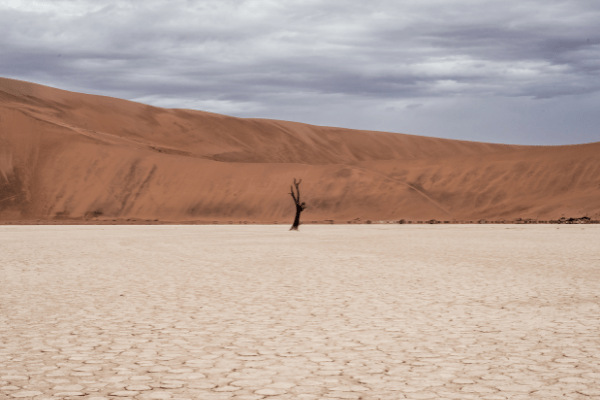Over five billion people could experience significant difficulty in accessing drinking water by 2050, the World Meteorological Organization (WMO) warned on Tuesday.
This figure has climbed sharply in recent years: in 2018 already 3.6 billion people did not have sufficient access to water for at least one month per year, according to a new report by the UN organisation.
The WMO stresses that the past 20 years has seen a dramatic decrease in global freshwater stocks, as aquifers have been drained or dried up. In turn, this has meant affected snow and rainfall as global temperatures rise during the climate crisis.
The most significant losses in water are recorded in the Antarctic and Greenland; however, "numerous densely populated regions nearer to the equator have also seen significant losses in available water in places that normally would have plenty of water available," the WMO added.
These losses have "major consequences on water security," the WMO stressed – "all the more so given that readily available soft water represents just 0.5% of water on the planet."
Related News
- Two months after floods, removal of 160,000 tonnes of waste starts in Liège
- EU auditors: “Support to agriculture not aligned with sustainable water use”
- Children 'disproportionately affected' by climate change
At the same time, catastrophes linked to water are increasing: not only in the form of shortages, but floods have increased by 134% in the last 20 years. In the same period, both the duration and number of droughts has gone up by 29%. And though most deaths and damage caused by flooding is in Asia and droughts are most acute in Africa, Europe has not been spared its share of water-related crises – as shown by this summer's fatal floods in Belgium and Germany.
To counter these rising threats, the WMO highlights the need to invest in water management systems as well as better ways to manage resources in general. Furthermore, it emphasises the dire need to improve water monitoring and points out that in around 40% of UN member states, "no figures are collected on fluctuations in water levels" whilst "67% are lacking information about available water."
Such figures are key to sustainably managing water usage. In Belgium, the average water footprint is equivalent to almost 100 bathtubs each day – an exorbitantly high amount that has seen the country's groundwater levels drop even whilst rainfall this summer broke all previous records.

